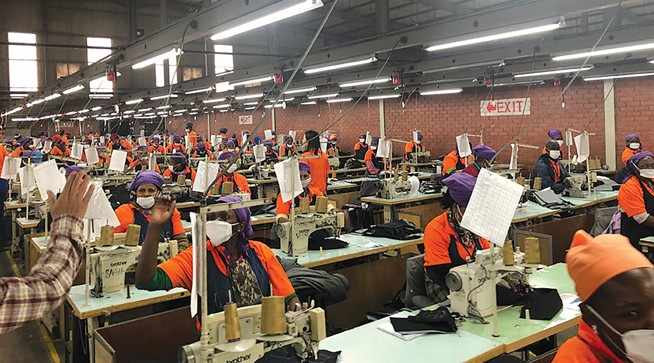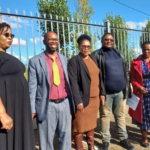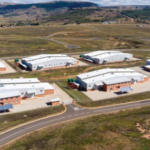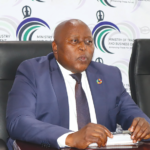The Private Sector Foundation of Lesotho (PSFL) has issued a stark warning that Lesotho’s economy could suffer a significant blow from the reinstatement of a 50 percent United States (U.S.) import tariff, which is expected to reduce export orders by up to 30 percent.
PSFL’s Chief Executive Officer Thabo Qhesi said the tariff, due to take effect from August 1, 2025, threatens to derail the country’s already fragile economy, with major consequences for the textile sector, one of Lesotho’s key industries.
“A temporary tariff reduction from 50 percent to 10 percent is set to expire on August 1, 2025. If reinstated, it could slash orders by up to 30 percent, threaten factory closures, and wipe out over M1 billion in annual exports,” Qhesi warned.
The textile industry, which contributes 13 percent to GDP and accounts for 47 percent of Lesotho’s exports, is particularly vulnerable. The U.S. remains Lesotho’s largest export destination under the African Growth and Opportunity Act (AGOA), which itself is due to expire in September 2025.
“If AGOA is not renewed, we will see a rapid decline in textile exports, loss of jobs, and reduced government revenue. It would be a perfect storm,” Qhesi added.
In April this year, Trade and Industry Minister Mokhethi Shelile echoed these concerns, warning of “disastrous consequences” if AGOA is not renewed. Currently, 11 manufacturers serve the U.S. market and employ over 12,000 Basotho workers.
The PSFL statement forms part of a broader analysis of Lesotho’s economic outlook, which Qhesi described as “precarious.”
Growth projections have been revised downward by both the African Development Bank (AfDB) and the World Bank.
“Lesotho’s real GDP growth is expected to decelerate sharply—from 2.4 percent in 2024 to 1.1 percent in 2025, and a further dip to 0.5 percent in 2026,” Qhesi said.
Foreign aid cuts have already taken a toll. The cancellation of the $300 million Millennium Challenge Corporation (MCC) Compact II and broader U.S. development assistance reductions have resulted in the loss of 1,500 healthcare jobs, significantly weakening HIV/AIDS prevention efforts.
The PSFL also highlighted an impending decline in Southern African Customs Union (SACU) revenues, which currently make up nearly 30 percent of GDP, expected to tighten fiscal space from FY2025/26 onward.
“While water royalties from LHWP II offer partial relief, overall fiscal balances remain under pressure,” Qhesi said.
Lesotho’s structural economic weaknesses remain a major concern. Unemployment stands at 22.5 percent (or 38.3 percent including discouraged job seekers), with over one-third of the population living below $2.15 per day. The country also depends heavily on South Africa for imports and remittances.
Although inflation has eased to 4.2 percent as of March 2025, exchange rate volatility continues to pose risks due to Lesotho’s currency peg to the South African rand.
Despite the gloomy picture, Qhesi said opportunities exist if the government takes decisive action.
“Lesotho must diversify its markets, particularly within SACU, invest in tourism and manufacturing, and improve the ease of doing business. Establishing a revenue stabilization fund and adopting fiscal rules are crucial to withstand SACU shocks,” he said.
Qhesi also urged support for initiatives like the World Bank’s Economic Inclusion Program and climate-resilient agriculture to address food insecurity worsened by El Niño.
In its Lesotho Country Focus Report 2025, the AfDB echoed similar sentiments, warning that a combination of trade shocks, aid withdrawal, and weak diversification could spark widespread unemployment, poverty, and social unrest.
“Long-term risks include deindustrialisation, a further rise in unemployment, and social instability. Poverty levels could rise, particularly in urban centres which are heavily reliant on factory employment,” the AfDB said.
To navigate these overlapping shocks, the AfDB recommended coordinated policy action, improved logistics infrastructure, and targeted investment in competitiveness, particularly in quality assurance, skills development, and SME growth.
“The uncertainty around the AGOA expiration, combined with trade tariffs on exports, necessitates the exploration of new markets, including AfCFTA, and the enhancement of manufacturing efficiency and value-addition in the country’s textile niche,” the report added.
The PSFL has called on the government, development partners, and the private sector to respond swiftly and cohesively to avert a deeper economic crisis and build a path toward inclusive and sustainable growth.
Summary
- The Private Sector Foundation of Lesotho (PSFL) has issued a stark warning that Lesotho’s economy could suffer a significant blow from the reinstatement of a 50 percent United States (U.
- In its Lesotho Country Focus Report 2025, the AfDB echoed similar sentiments, warning that a combination of trade shocks, aid withdrawal, and weak diversification could spark widespread unemployment, poverty, and social unrest.
- “The uncertainty around the AGOA expiration, combined with trade tariffs on exports, necessitates the exploration of new markets, including AfCFTA, and the enhancement of manufacturing efficiency and value-addition in the country’s textile niche,” the report added.










